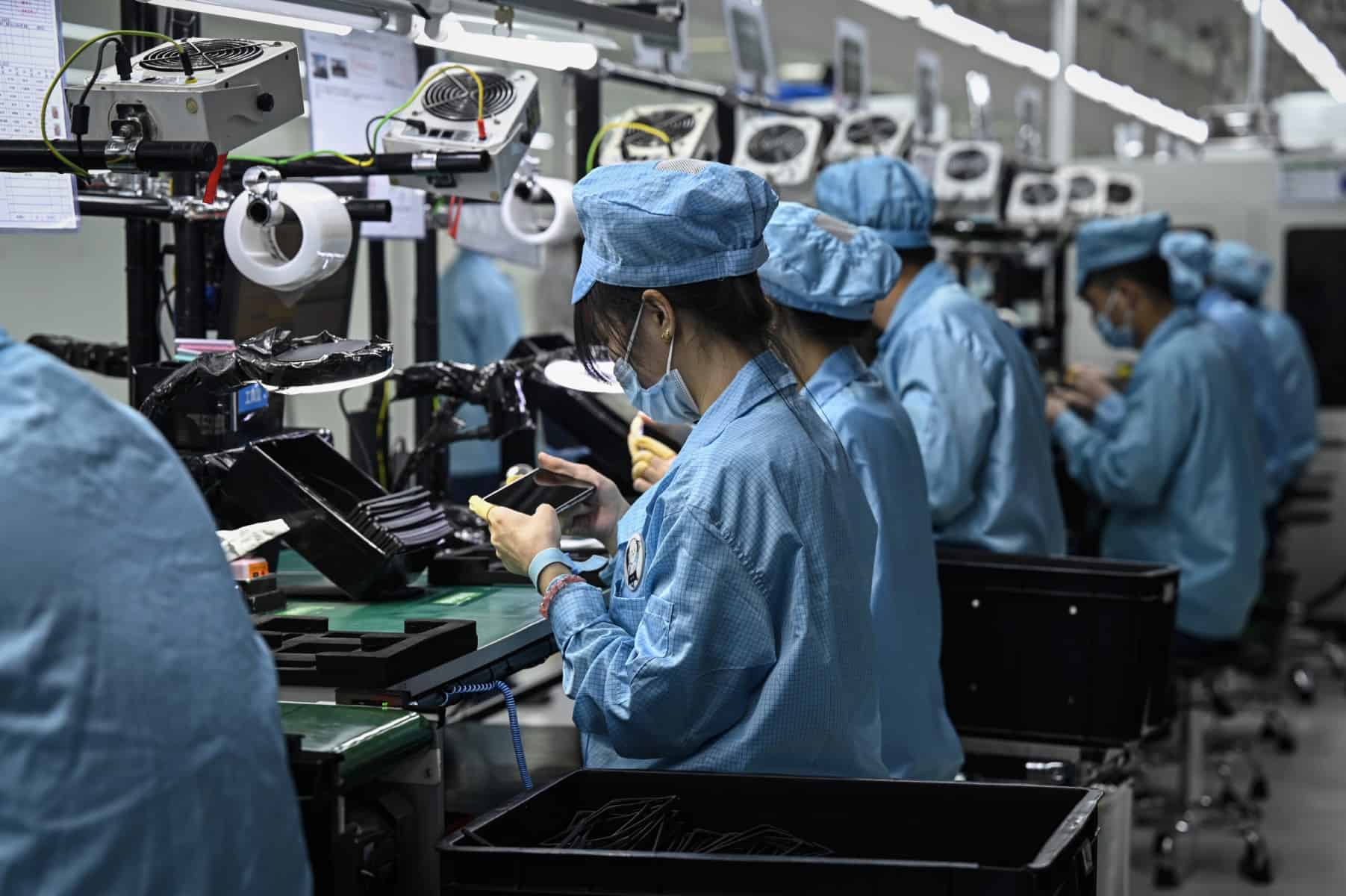China’s central bank slashed key interest rates Monday in a bid to kick-start the country’s stuttering economic recovery as data showed factory output and retail sales for July came in weaker than analysts’ expectations.
The world’s second-biggest economy saw a bounce in business activity as some coronavirus restrictions eased in June, but the boost is fading and Beijing remains welded to a zero-Covid policy of snap lockdowns and long quarantines, which has battered sentiment.
For July, China’s industrial production rose 3.8 percent on-year, down from a 3.9 percent jump in June, the National Bureau of Statistics (NBS) said Monday.
Retail sales grew at a slower-than-expected 2.7 percent from a year ago, down from 3.1 percent in June, while the urban unemployment rate fell to 5.4 percent, the NBS said.
“The risk of stagflation in the world economy is rising, and the foundation for domestic economic recovery is not yet solid,” the NBS warned in a statement.
“We think the weakness in retail sales was due to renewed virus disruptions and the blow to consumer sentiment from the problems in the property market,” said Julian Evans-Pritchard, senior China economist at Capital Economics said in a note on Monday.
The virus remains a risk, with zero-Covid meaning that “targeted lockdowns will remain commonplace, depressing consumer activity and spending,” he said, while slow progress in expanding vaccination among the elderly means this policy will not be abandoned soon.
“July’s economic data is very alarming,” Raymond Yeung, Greater China economist at Australia & New Zealand Banking Group Ltd, told Bloomberg TV.
China’s property sector has been teetering, with frustrated homebuyers across dozens of cities taking part in mortgage boycotts as cash-strapped developers struggle to complete projects.
The country’s economic growth was just 0.4 percent on-year in the second quarter — its slowest rate since the initial Covid outbreak.
And the People’s Bank of China Monday cut its policy rates, bringing its seven-day reverse repurchase rate — a key rate at which the central bank provides short-term liquidity to banks — to a new low.
It also cut its one-year medium-term lending facility, surprising forecasters, although some analysts believe this may not be enough to revive credit growth.
Credit growth in China edged down in July, with analysts at Nomura saying in a report that it did not bode well for the second half of the year.
“The combination of zero-Covid strategy and the deteriorating property sector continues to drag down the economy, even as export growth remains elevated and the automobile sector gets a boost from the purchase tax cut,” they said.








